BC Parks Foundation
Reconnecting with the health benefits of nature: Q&A with Dr. Melissa Lem
May 14, 2020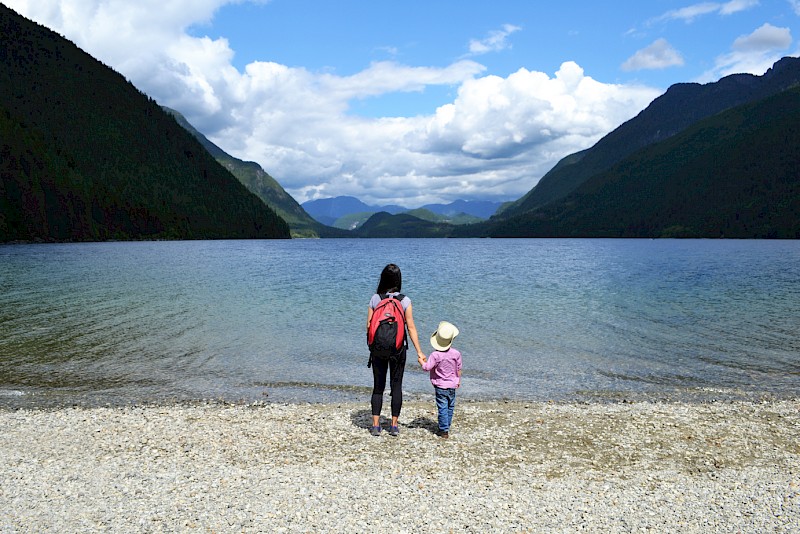
The global pandemic has changed the way we interact with one another and our communities. Here in B.C., we're fortunate to not be put under as strict stay-at-home orders as other regions. But what does the pandemic mean for spending time in nature? Can spending time outside actually help our communities?
We sat down with Dr. Melissa Lem, a Vancouver-based family physician and director of the BC Parks Foundation's Parks Prescriptions program to get her take on how we can all connect (or re-connect) with the health benefits of nature.
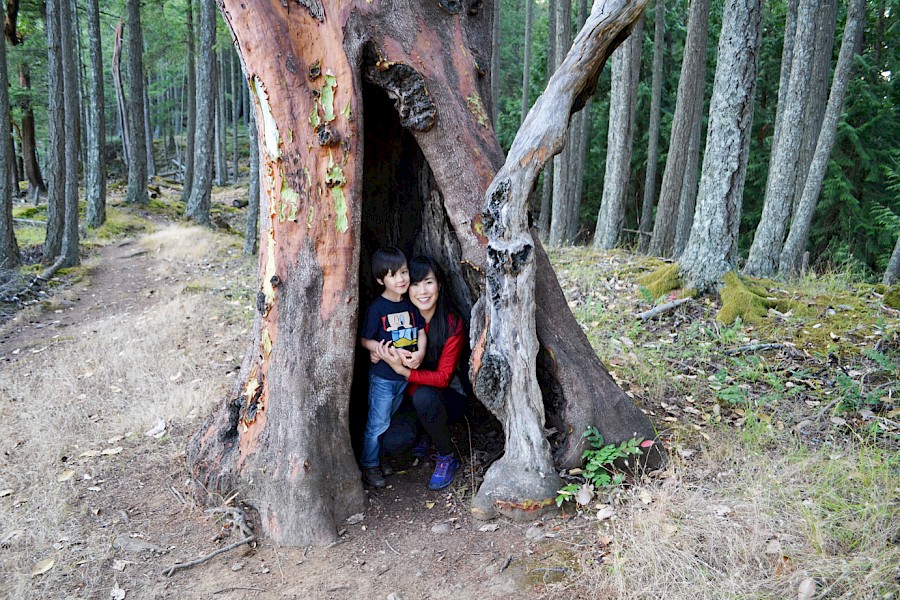
BC Parks Foundation: Many people chose to take extra precautions and stayed at home as much as possible. Now that we’ve seen evidence of the flattened curve, why is it so important for British Columbians to get outside and reconnect with nature?
Dr. Melissa Lem: Connecting with nature is one of the best things we can do for ourselves. There’s particularly good research around the benefits for mental health and children’s health. Adults who spend more time in green space recover better from stress and are more satisfied with life. Kids who play in nature develop better eyesight, motor skills and body weight, and behave and concentrate better — which is so useful when we’re trying to homeschool them.
Also, a lot of the other places where we usually gather to de-stress and spend time with family and friends like gyms, theatres and cafes are still closed. That makes parks and urban green spaces an essential resource for our wellness.
BCPF: Is there any connection between spending time in nature and an improved immune system?
ML: I’m so glad you asked that question! There’s some fascinating evidence out there about how nature can boost our immune system. One study from Japan showed that adults who took day hikes in the forest significantly raised their blood levels of cancer-fighting proteins and natural killer cells, which are our first line of defence against viruses. Amazingly, this effect lasted more than thirty days after each visit.
Other research shows that just breathing in the smell of trees can enhance your immune-cell activity. We think there are two main reasons for these benefits: the stress-busting effects, which lower inflammation and keep your body working well, and exposure to phytoncides, or plant chemicals that directly stimulate immune function.
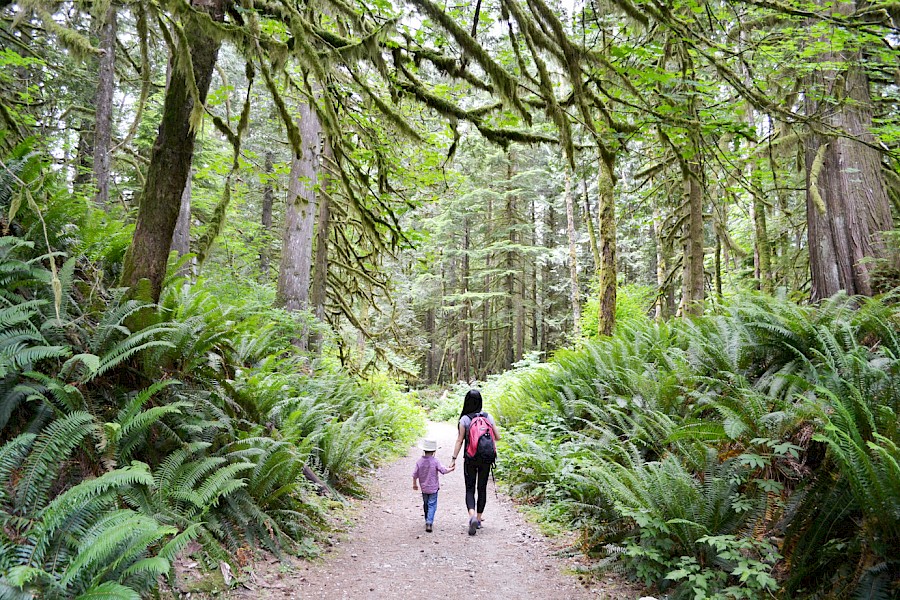
BCPF: Should we be acting differently outside right now compared to the pre-COVID era?
ML: Yes, we definitely should be. I was so excited to hear that many BC Parks will be reopening soon, but we have to be flexible and respectful to make sure they stay that way. First of all, we still need to practice physical distancing at all times by staying at least 2 metres away from people outside our households, and avoid gathering in groups of more than 6 people. Choose walking routes on treed side roads instead of busy main roads. If a park or beach looks crowded, avoid it and try to go during off-peak hours.
For now, we should be trying to stay close to home when we’re getting outside to avoid burdening health-care resources in more rural and remote areas. It’s also great to see how cities everywhere are recognizing how important it is for people to get outside safely and closing some streets to car traffic, like Vancouver did with Stanley Park last month.
BCPF: If I can’t make it out to a provincial park, what are some other ways I can get the health benefits of nature from my home or my neighbourhood?
ML: I think we have to be more creative and mindful if we want to get the health benefits of nature from our neighbourhoods and homes. Get to know the green-print of your local area by finding and exploring any little patch of park or waterfront you can find. If you feel like you’re spending too much time in your favourite local nature spot, slow down, go deep and focus in on the details of a tree or patch of beach.
If you’re self-isolating inside, remember that our brains crave nature so much that even just looking out a window at trees and images of nature can boost our spirits. So we should surround ourselves with as much green as we can: think balcony and house plants, nature sound loops, or even family camping trips in the backyard.
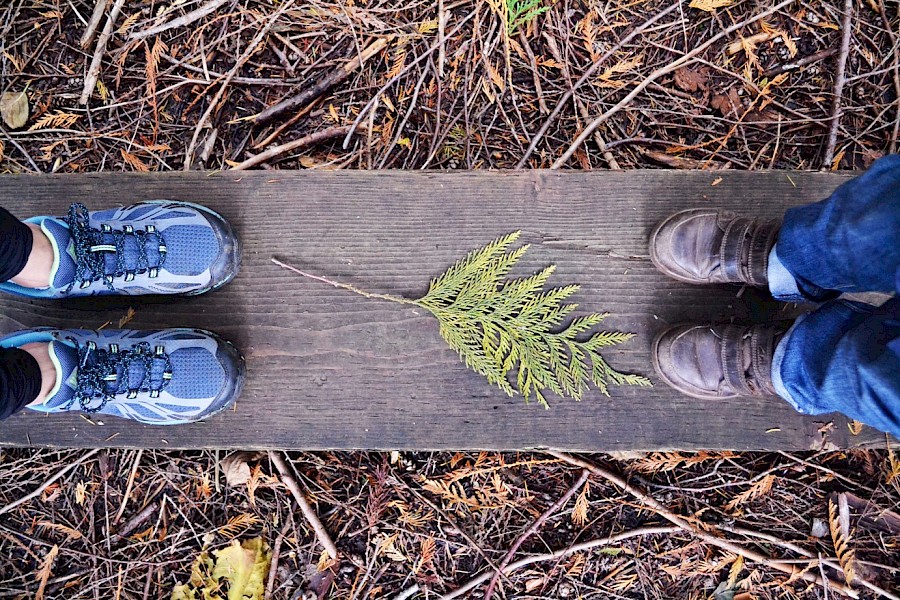
BCPF: Where are some of your favourite places to go to spend time outside with your family?
ML: Right now because we need to stay local we’re spending a lot of time on the shores of Jericho Beach and trails of Pacific Spirit Regional Park because they’re both within walking distance of our home. I’ve also spent a lot of time working on the Gulf Islands and in northwest B.C. and getting to know some of the local trails inside and out, and we can’t wait to hike there again.
BCPF: Is there anything else we should know about the health benefits of nature?
ML: Along with the incredible benefits for our individual health, connecting to nature also sets us up for a healthy world now and in the future. Kids who connect to nature are more likely to become environmentalists when they grow up. Adults who are more nature-connected are more likely to value conservation and behave in pro-environmental ways.
The UN Environment Programme has said that if we fully embrace nature-based solutions for climate change–which focus on preserving and restoring our natural ecosystems — we can get more than a third of the way to our 2030 greenhouse-gas targets. So expanding and protecting our urban green spaces, parks and wild spaces is one of the best things we can do for people and the planet right now.
You heard it here! Spend some time with your family and loved ones, reconnecting with the health benefits of nature.
All photos supplied by Dr. Melissa Lem.
Love this? For more inspiring stories about conservation wins, community efforts, and ways you can help protect nature, subscribe to our newsletter today.
Similar Stories
-
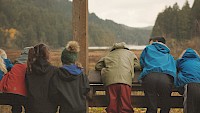 November 22, 2024
November 22, 2024
Run, Salmon, Run: 4 Jaw-Dropping Facts About the Chum’s Epic Journey
-
 December 17, 2024
December 17, 2024
Newcomers Find Hope and Home in Nature this Season
-
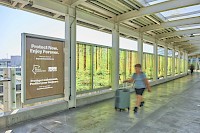 August 26, 2025
August 26, 2025
Connecting Millions to Nature: BC Parks Foundation Partners with Vancouver International Airport
“Adopt the pace of nature: her secret is patience.
”